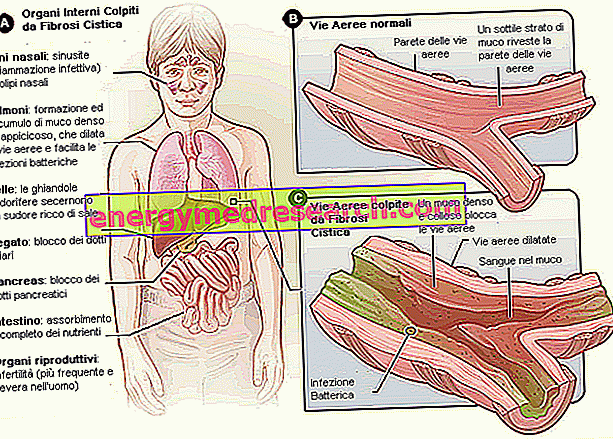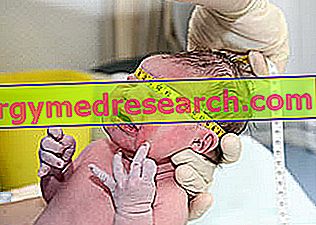Generality Cystic fibrosis is the most common autosomal recessive disease in the Caucasian population, affecting approximately 1 individual in every 2, 500. This pathological condition is known for its harmful effects on the respiratory system, but it also affects other systems such as the digestive and reproductive systems
Category genetic diseases
Generality Proteus syndrome is a very rare genetic disease, characterized by the uncontrolled growth of different types of tissues (bone, skin, fat, etc.) and of different internal organs (blood vessels, spleen, brain, etc.). Due to a specific mutation in the AKT1 gene, Proteus syndrome is never a hereditary condition; this means that at its origin there is always an acquired mutational event, taking place after conception, in the very early stages of embryonic development
Generality Treacher Collins syndrome is a rare genetic disorder that causes particular deformities and facial abnormalities. Due to the mutation of one of the genes known as TCOF1, POLR1C and POLR1D, Treacher Collins syndrome can be both a condition acquired during embryonic development and a hereditary condition
Generality Pfeiffer syndrome is a rare genetic disorder characterized by craniosynostosis and the presence of large thumbs and big toes abnormally deviated inwards. Observable in one newborn per 100, 000, Pfeiffer syndrome is associated with the mutation of the FGFR1 and FGFR2 genes; both these genes have the task of regulating the fusion of the cranial sutures and the development of the fingers and toes
Generality Sotos syndrome is a rare genetic disorder characterized by excessive skeletal growth, craniofacial anomalies, mental retardation, motor problems and behavioral problems. Due to the mutation of the NSD1 gene, Sotos syndrome is a condition acquired during embryonic development, in more than 90% of cases, and a hereditary condition, in the percentage of remaining cases; therefore, it is almost always the result of a new mutational event
Generality Lynch syndrome is a genetic, purely hereditary condition, which predisposes to the development of various malignant tumors, primarily colorectal cancer. Also known as hereditary non-polypose colorectal cancer, Lynch's syndrome is due to the mutation of genes responsible for correcting errors in the DNA duplication system, during cell division processes
Related articles: Achondroplasia Definition Achondroplasia is a genetic disease characterized by an abnormal development of the skeleton. More specifically, it is a form of chondrodysplasia, caused by alterations affecting the FGFR3 gene, which codes for the fibroblast growth factor receptor, which is important for regulating bone growth
Related articles: Albinism Definition Albinism is a pathological condition characterized by widespread or partial hypopigmentation of the skin, hair and eyes. The cause is attributable to a defect in the synthesis of melanin, transmitted as a hereditary character. This pigment is therefore absent or considerably reduced, despite the fact that the melanocytes are present in normal numbers
Definition Arthrogryposis is a multiple joint contracture, involving two or more anatomical districts. This clinical sign is congenital and can occur in different pathological conditions. Arthrogryposis may be sporadic or arise on a genetic basis. The causes are partly unknown, but it is assumed that the origin can be multifactorial
Definition Cyclopia is a rare congenital anomaly, characterized by the presence of a single orbital cavity, more or less complete, in the middle of the forehead. This malformation is caused by genetic disorders or exposure to teratogenic substances during morphogenesis. Cyclopia is an extreme case of holoprosencephaly, in which the correct division of the two eye sockets during embryonic development is unsuccessful
Related articles: Duchenne dystrophy Definition Duchenne dystrophy is a congenital muscle disease, which occurs in early childhood with progressive weakness, delayed walking and frequent falls. This pathology is caused by alterations of one or more genes necessary for normal muscle function, inherited from the mother in 2/3 of the cases











